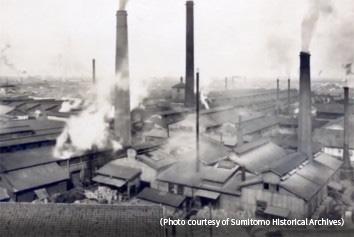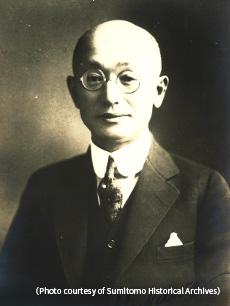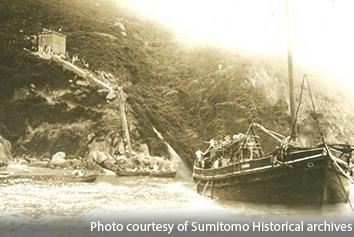About us

on April 1, 1897, establishing Sumitomo Copper Rolling Works, Head office was established in Ajigawa-kamidori (in present-day Kita-ku, Osaka City), and it began the production of copper wire, plate, and rod, with the aim to “produce and sell copper plate, wire and rod using copper from Besshi Copper Mine as raw material.”

In 1911,the electric wire business was separated from Sumitomo Copper Rolling Works, and established as an independent business, Sumitomo Electric Wire & Cable Works, which was the direct predecessor of Sumitomo Electric. In autumn 1911, Sumitomo Electric Wire & Cable Works was the first in Japan to successfully commercialize lead-covered paper-insulated cable for electrical power, proving the company’s advance to the next level of technological capability. It was incorporated in 1920, On December 10, 1920, the company was incorporated, becoming the Sumitomo Electric Wire & Cable Works Ltd. It was the third of the Sumitomo family’s businesses to be incorporated, after Sumitomo Bank, Ltd. (1912) and Sumitomo Casting Works, Ltd.6 (1915). The head office was located in Osaka City, with 10 million yen in capital.

In October 1922 Sumitomo Electric Wire & Cable Works successfully manufactured and laid a 21 km long-distance submarine power cable, the world’s longest submarine cable, connecting the Niihama, Ehime Prefecture to Shisakajima Island.
On November 1, 1939 Sumitomo Electric Wire & Cable Works changed its name to the company’s present name, Sumitomo Electric Industries, Ltd. In the lead up, in October, the company’s capital was increased from 30 million yen to 50 million yen to use. A major reason for renaming the company was that the business had expanded to fields other than electric wires and development was progressing in both quantity and quality
A violent earthquake of magnitude 7.9 shook the Kanto regions around the noon on September 1, 1923. The devastating quake left approximately 142,800 people dead or missing, around 447,000 houses were destroyed by the resultant fires and a further 130,000 homes collapsed or were lost to tsunami. Most communications and transport systems were damaged or lost to fire and the city was paralyzed.
As part of restoration work, Tokyo Sales Office first received an order from the Ministry of Railways for paper-insulated cables for the loop line, but the price quotation proved challenging. With exorbitant market prices for the raw materials for electric wires, such as copper and lead, a decree was issued to prohibit profiteering, and general prices rose to two to three times higher than pre-disaster levels. Against this backdrop, Sumitomo decided to supply its products at the pre-Earthquake prices, and undertook day and night production to reduce delivery time.
This decision demonstrated
the Sumitomo management principles passed from one generation to the next since the company’s founding, prioritizing the Business Philosophy: to not pursue immoral business; always for the public interest; and mutual prosperity.
